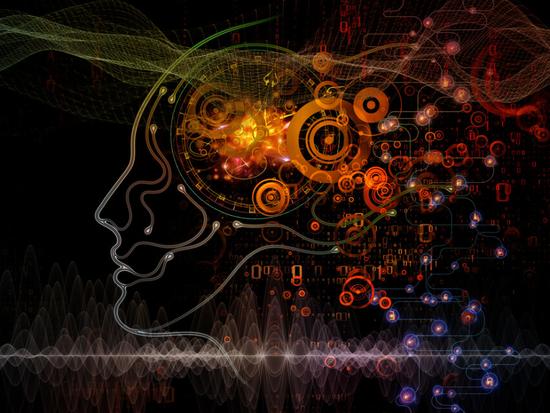
July 5 news, according to foreign media reports, humans are constantly pursuing their own ability to improve. Combining this spirit with the breakthroughs of recent artificial intelligence and constantly surpassing human beings has been inevitable, especially in the field of brain enhancement.
Artificial intelligence technology has proven that it can make software more intuitive and user-friendly. From the popularity of digital voice assistants such as Alexa and Siri to application authentication using smart face recognition technology, machines are constantly improving our lives. With the convenience and enhanced security of artificial intelligence through everyday devices, people's acceptance of artificial intelligence continues to increase. Now that artificial intelligence has been incorporated into the smartphones we commonly use, scientists are aiming for the next higher standard device carrier: the human brain.
Visionary entrepreneurs including Tesla CEO Elon Musk and ernel co-founder Bryan Johnson have collaborated with scientists from around the world to focus on brain enhancement technology Realization. In short, the research goal is to increase brain intelligence and repair impaired cognitive abilities through brain implants. A recent study published by Mikhail Lebedev, a senior researcher at Duke University, pointed out that brain enhancement technology will be popular in 2030.
Lebedev's main research focus is to develop a device that can be fully implanted in the brain. The development of power and wireless communication systems is a huge challenge, but Musk is also working hard. Earlier this year, Musk launched Neuralink, a neuroscience company, which aims to integrate the human brain with software to optimize physiological functions. Musk hopes to provide new treatments for brain trauma including stroke and cancerous lesions through about four years of hard work.
Neuralink is still in its early stages, and other Silicon Valley companies also expect to be able to get involved in human brain enhancement technology. Braintree founder Bryan Johnson invested more than $100 million in a neuroscience company. The start-up, called Kernel, consists of neuroscientists and engineers who have been working to reverse the effects of neurodegenerative diseases such as Parkinson's disease by developing a micro-embedded chip-based neuroprosthesis. Scientists also admit that the current research on brain neurons is still in its infancy, and there is still a long way to go to write code to affect neuron function. However, the resources and social concerns provided by entrepreneurs today will undoubtedly accelerate this process.
It will take time to create fully implantable brain-enhancing devices, but we can look forward to enhancing brain function through artificial intelligence in the short term.
Currently, scientists can use electronic stimulation to trigger the sensation of the brain, which has great potential for improving the cognitive function of the injury. The visual function of the blind can be triggered to experience visual stimuli. For paralyzed patients, it is also possible to trigger feelings by stimulating the limbs. This method can even improve cognitive function that degrades with age.
In addition, this effect is not limited to repairing human brain cognitive functions. In 2013, Miguel Nicolelis, a neurobiologist at Duke University, successfully conducted an experiment demonstrating that rats can communicate directly through the brain. This brain-computer interface allows mice to share stimulus information electronically. The experiment has a major impact on humans. For artificial intelligence, sharing memories and information, even changing our shared consciousness, is remote but achievable. Imagine the pain of an office meeting. If the content of the meeting can be downloaded directly to our brains, what an amazing thing to expect!
The brain enhancement technology based on artificial intelligence technology represents the greatest progress in human history. Enhances human brain function, can optimize and improve everything, eliminate disease, and provide people with a higher quality of life. We can think of it: When the iPhone was launched ten years ago, the smart phone was just a crazy idea until the iPhone was only released a decade ago. Nowadays, 44% of people in the world own a smart phone, and the corresponding cloud computing capabilities are even more impressive.
The famous futurist and Google chief executive Ray Kurzweil predicted that by the 1920s, nanobots could enter our brains through capillary tubes, creating directly immersive virtual reality for the human brain. It can connect our cerebral cortex with the cloud platform and expand our brain functions just as smart phones in our hands use cloud computing.
It is important to know that since the 1990s, Kuzwil has predicted accuracy of 86%. If everything really happens, it will give the cloud a whole new meaning. (晗冰)
Shenzhen Kate Technology Co., Ltd. , https://www.katevape.com
